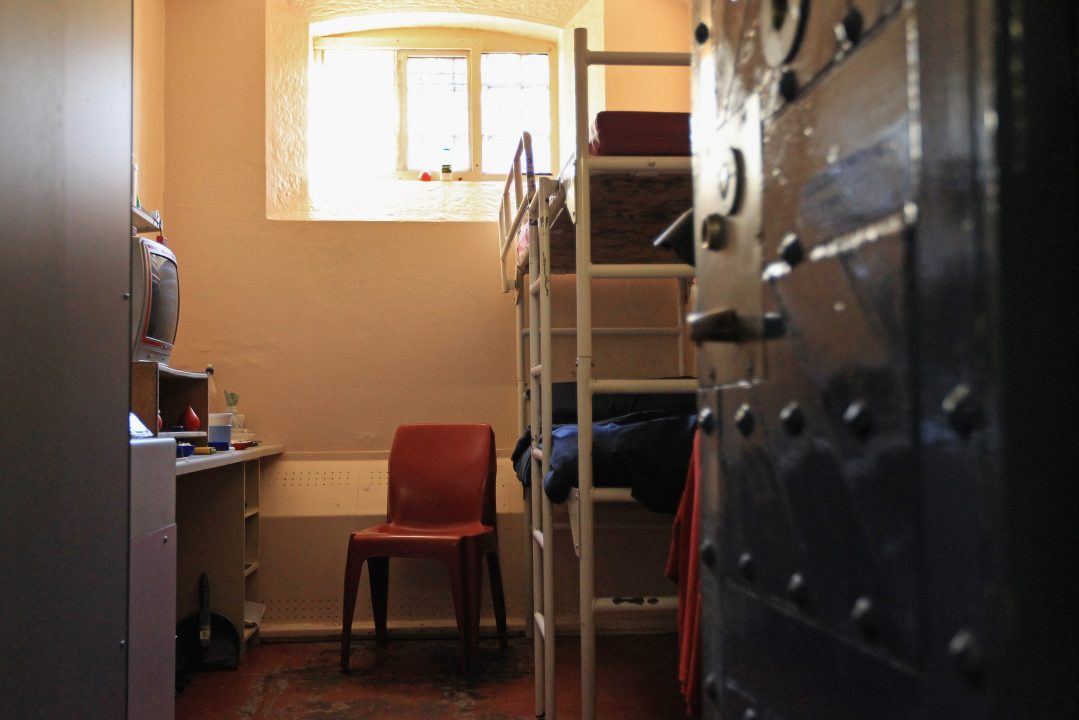Key Points
-
 A spike in inmate numbers comes as Scottish prison capacity is at ‘critical risk’
A spike in inmate numbers comes as Scottish prison capacity is at ‘critical risk’ -
 Scotland’s justice secretary said ‘immediate and urgent action’ was needed
Scotland’s justice secretary said ‘immediate and urgent action’ was needed -
 Around 514 prisoners will be released early across the next four weeks
Around 514 prisoners will be released early across the next four weeks -
 Only prisoners serving sentences of under four years with 180 days or less left have been considered
Only prisoners serving sentences of under four years with 180 days or less left have been considered -
 Those serving sentences for sexual offences or domestic abuse are automatically excluded
Those serving sentences for sexual offences or domestic abuse are automatically excluded
The first tranche of Scottish prisoners being released early due to overcrowding fears will leave jails from Wednesday.
In total, more than 500 prisoners will have leave before serving their full sentence after legislation was passed at Holyrood last month.
It comes after a spike in inmate numbers and concerns that capacity of prison estates are at “critical risk”.
Justice secretary Angela Constance says “immediate and urgent action is needed” to tackle the issue.
Why are prisoners being released early?
The Scottish Government says action is needed to address the impacts of an unprecedented rise in the country’s prison population.
It has increased by around 400 in the past few months, and 13% since the beginning of 2023.
Earlier this month, Constance said the prison population stood at 8,294 – down from 8,348 on the day the plans were announced – but still well above the target operating capacity of 8,007.
Victims of crime are being asked to register for a notification scheme, or support organisations, to be told when their offender is released.
How many prisoners are being released?
Around 514 prisoners will be released in four tranches.
- Those with less than 45 days left to serve will be released on Wednesday and Thursday.
- Those with 45-89 days left to serve will be released on July 3/4.
- Those with 90-134 days left to serve will be released on July 10/11.
- Those with 135-180 days left to serve will be released on July 17/18.
- All of the prisoners identified for early release will be out of prison by July 25.
Are any safeguards built into the scheme?
Yes, the following safeguards have been built in:
- Only prisoners serving short sentences of under four years who have 180 days or less left to serve will be considered for release
- Prisoners such as those given a life sentence, or serving a sentence for sexual offences or domestic abuse, will be automatically excluded
- Prison governors will have the power to veto the release of any prisoner they deem an immediate risk to a specific individual or group
‘This is a shambolic solution to a shambolic problem’
The chief executive of Sisco, a charity that supports men and women from inside the prison, said the plan to release prisoners early is ‘a shambolic solution to a shambolic problem’.
Natalie Logan told STV News the charity doesn’t have the resources to pick up the 500 men and women earmarked to leave early.
“We can only imagine Glasgow’s going to have some of the highest numbers coming back into our locality,” she said.
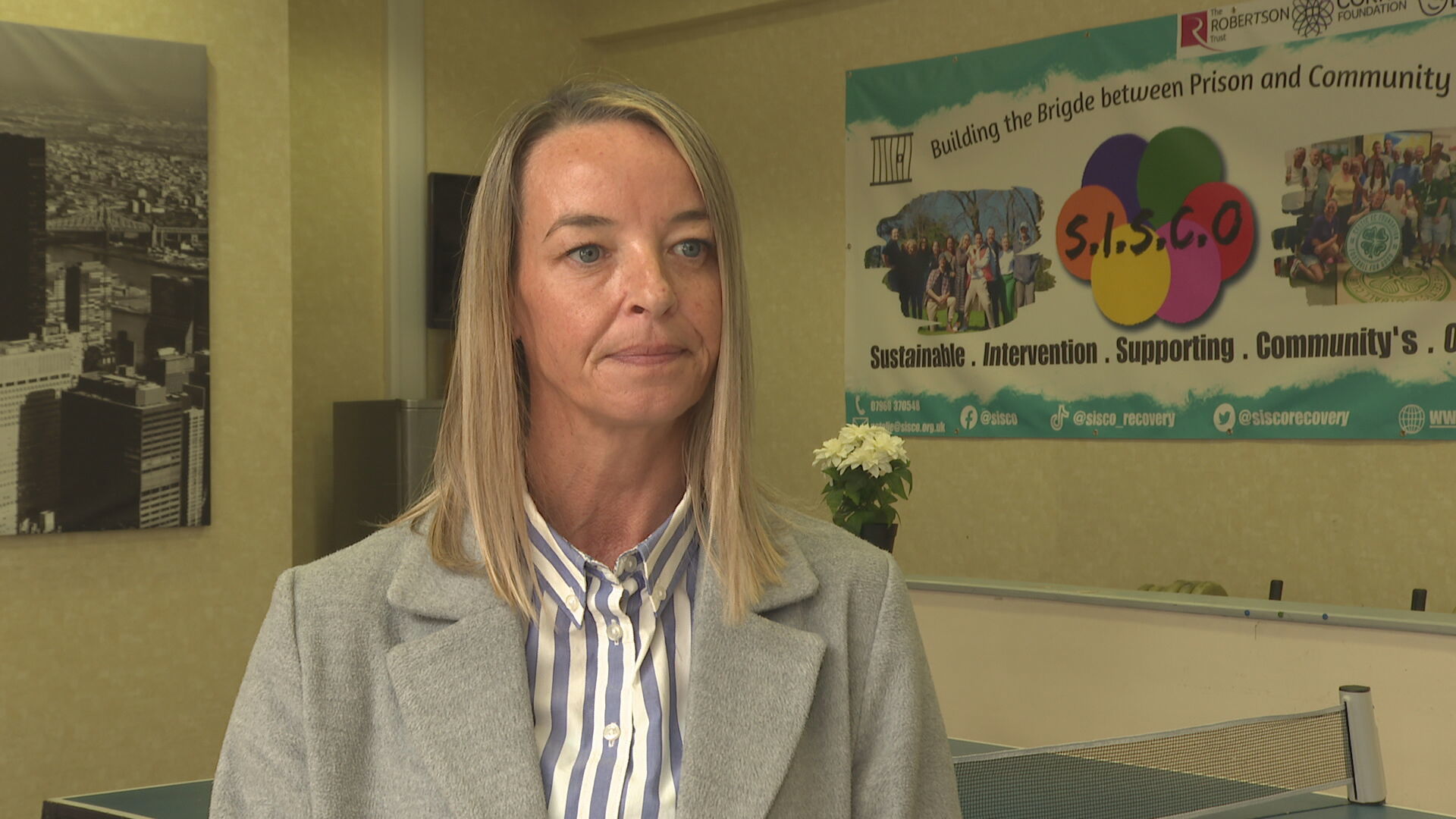 STV News
STV News“We absolutely cannot cope. We are overwhelmed at the moment. There have been no finances put into this. There has been no contingency plans to Sisco or communications to ask can you meet the demand in the community?
“We’ve got 32 existing partners across the board in every locality and they have the same fear. They don’t have resources, they don’t have the funding, they don’t have capacity, they don’t have accommodation. We are setting people up to fail and we’re wasting taxpayers money.”
“I think if you’ve got 500 people going back into localities and we know how difficult it is to get a GP appointment, potentially 400 of these people are going to be on medication that they need every single day.
“We don’t have 400 doctors available to see them on that day. We don’t have 400 care managers that can pull themselves from another crisis client to work with someone come out prison. We don’t have resources across the board.
“We have got men and women leaving prisons that we’re having to pay hostels for overnight cause there is no accommodation, there is nothing.”
‘This month is looking pretty hectic’
Shine, a national mentoring service for women offenders, will have staff ready to meet women at prison gates across Scotland.
It is believed around 60 of the 500 prisoners being released are women.
Sammy Clark, Shine’s project co-ordinator, said: “The last week has been manic as the amount of work involved in trying to turn these releases around is huge.
“We normally have 12 weeks before the women’s release to work with her to build a relationship, to make sure all services are working well together and that there’s a really robust release plan in place for her.
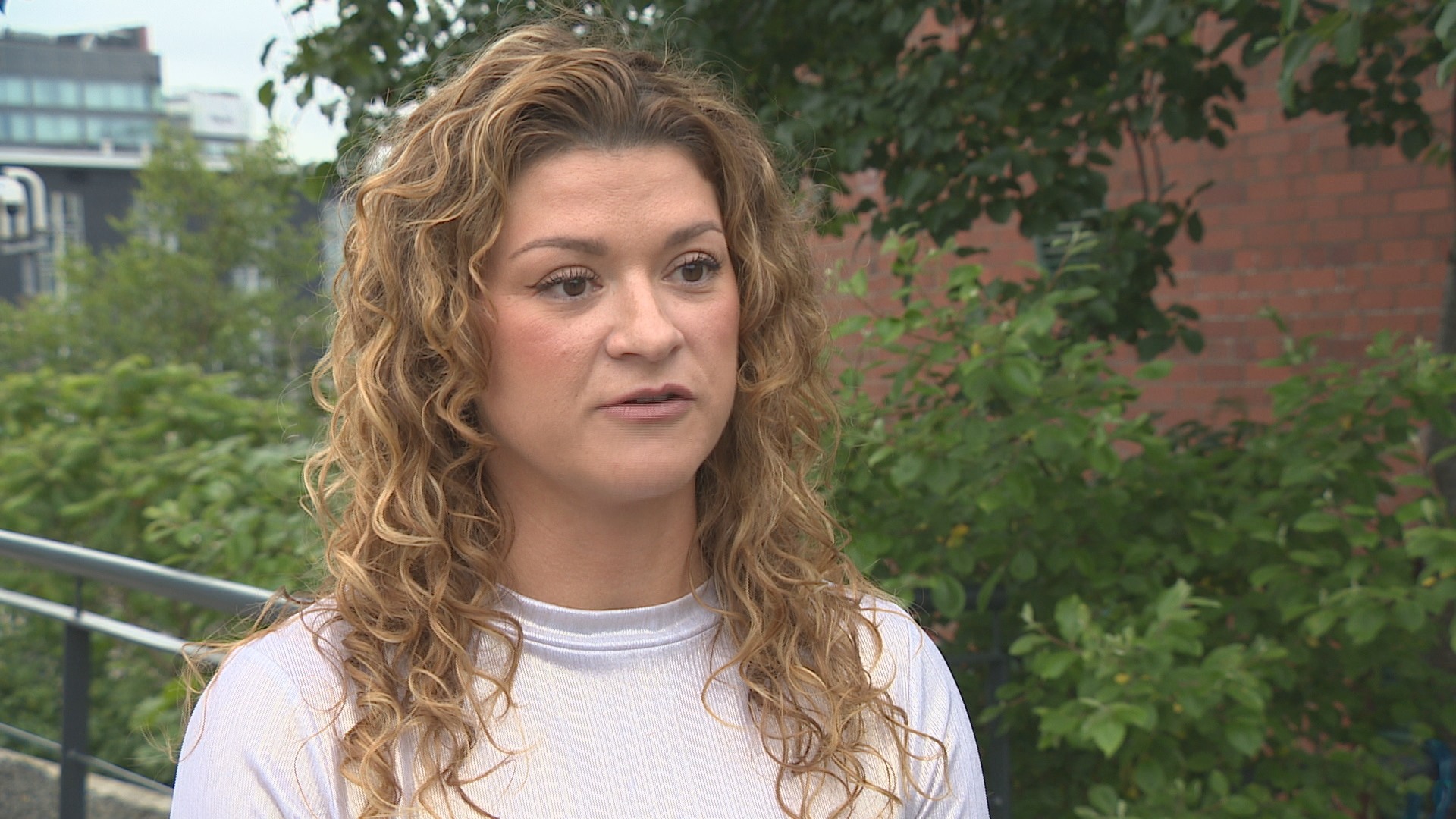 STV News
STV News“It is an emergency and we know this needed to be done because of the prison overcrowding and the timescales are pressing and that’s not ideal but we have strong relationships with the Scottish Prison Service and with local authorities and we will make this work.
“The mentors have dropped everything that is non-essential to make sure we have enough people to ensure these women’s needs met. But we know it is a big ask.
“The housing crisis is a major factor in our women’s ability to do well when they’re released from prison. It’s a sad fact that sometimes when a woman is in prison, that’s when they know that they’ve got a safe roof over their head. The shortage of housing will make it so much harder for the women to reduce their reoffending outside.
“That first 48 hours when women are being released, we need them to be in safe and stable accommodation and have access to the services that they need, like GPs and addiction services. If they don’t have that access as quickly as they should have, it’s concerning. A lot of those women might end up back in prison.
“There was a lot of reoffending during Covid and it felt at times like we were working with the same people over and over again because they just weren’t getting that chance outside to make good decisions for themselves. As much as we can support them, we can’t provide all the services.”
‘Some people leave prison with a blank canvas’
The Wise Group is the main provider of prison mentoring for men in Scotland.
Julie Kelly, a community-based mentor with the group, said: “The service is a very busy service anyway and we have had to try and triage people’s needs to see who is the most vulnerable and who is going to need more support.
“It’s a case of working on a case by case basis. I have two people being liberated on the same day. One person has his own tenancy and has a partner picking them up.
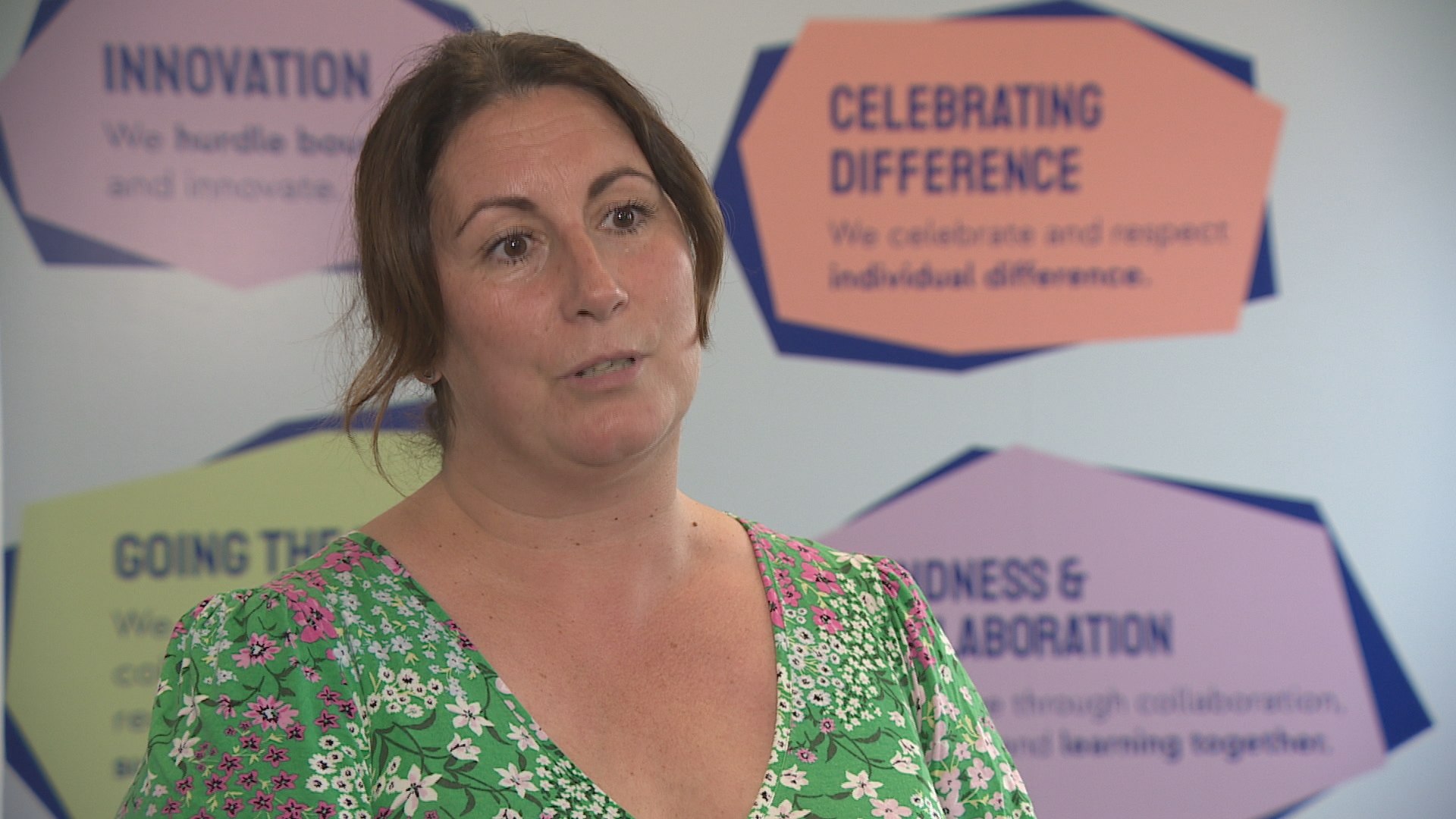 STV News
STV News“The other person isn’t so lucky, so my focus will be on that and engaging with the relevant services. There are no two people with the same issues, every case has its own challenges, and it’s just about a mentor working with localised services, engaging with them to get the best possible outcome.
“Some people leave custody with a blank canvas, they have no GP records, no GP service, no housing so they’re having to build their life from scratch.
“It’s really important that we get it right and the health and support is there to make the rest of the transition back into community a smoother process.
“In my experience, the local authorities always have somewhere for them, whether it be a hostel situation or a temporary furnished flat or temporary accommodation.
“I have never been in a position where someone has had nowhere to go. It’s about maintaining the relationship that we have with the local services.
“The level of service that we provide doesn’t change. The challenges that we face on a day-to-day basis, they don’t change either, so it’s about being as prepared as we can be and doing as much work as we can in the background to face these next few weeks.”
What is the prison services’ view?
A Scottish Prison Service spokesperson said: “We have worked collaboratively with partners to prepare those approaching the end of their sentence for a supported early release.
“Governors have vetoed anyone they found posed an immediate risk to individuals or groups, with the help of intelligence from police and social work.
“The safety and wellbeing of people in our care, our staff, and the communities we support continues to be a key priority throughout, with information for victims and families available on our website.”
And what about the Scottish Government?
Constance said: “Immediate and urgent action is needed to deal with the significant recent rise in the prison population. We are working with victims organisations to ensure the right information and support is available where needed.
“Victims already registered with the either of the two statutory information schemes will automatically be informed of the release of the prisoner in their case.
“In cases of emergency release, we have added two other ways to receive information. Victims can go through one of four named victim support organisations who can request information about a prisoner’s release on their behalf. Alternatively, a victim can contact the Scottish Prison Service directly to request that information.
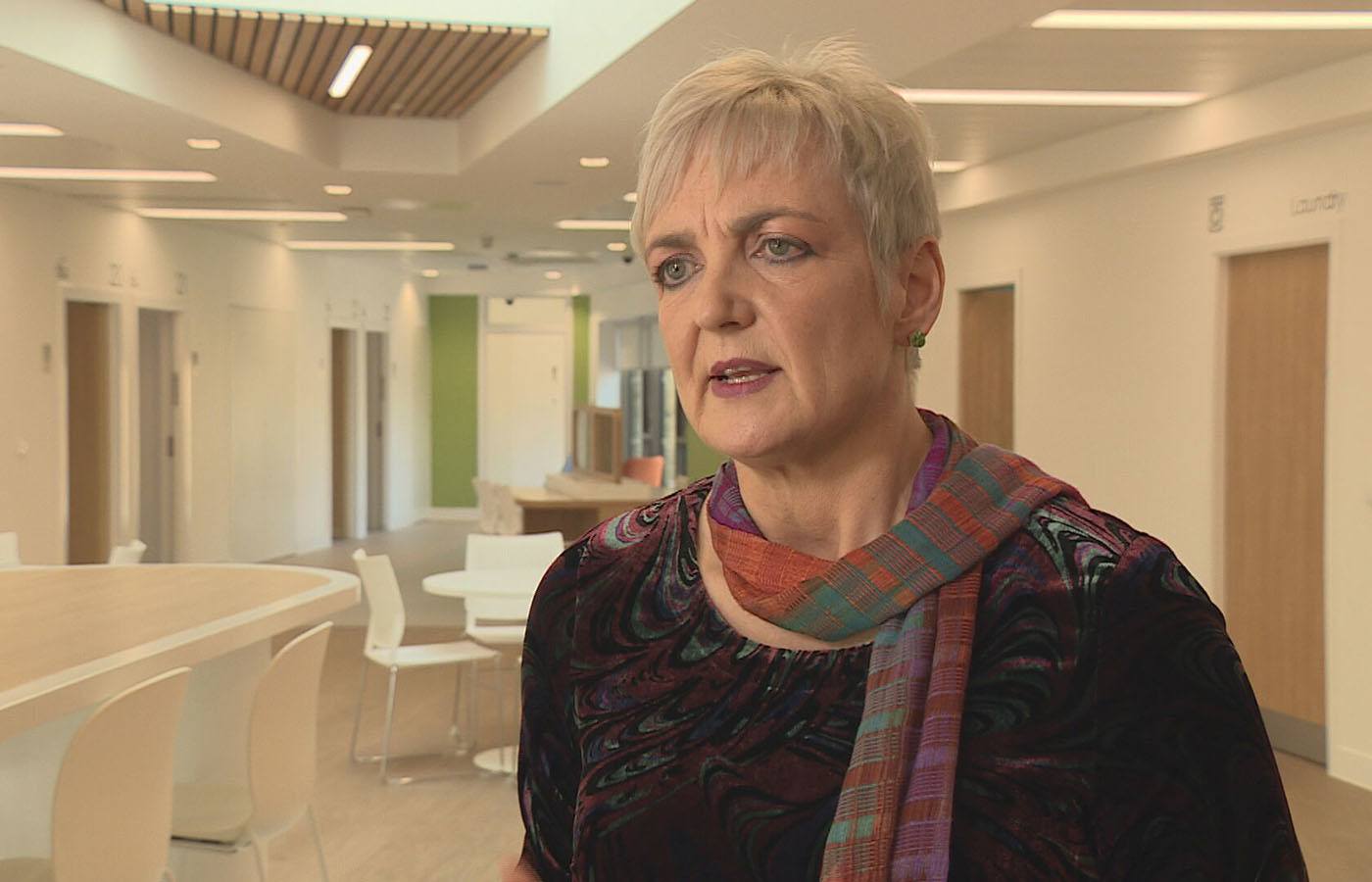 STV News
STV News“This emergency early release process, backed by Parliament, is necessary to keep our prisons safe and to protect the safety and welfare of prison staff and prisoners.
“Protecting the public remains my absolute priority, which is why there are safeguards in place including automatic exclusions and a governor veto. Releases will also be completed in tranches so the necessary support can be provided to safely resettle released prisoners in their communities.”
Follow STV News on WhatsApp
Scan the QR code on your mobile device for all the latest news from around the country


